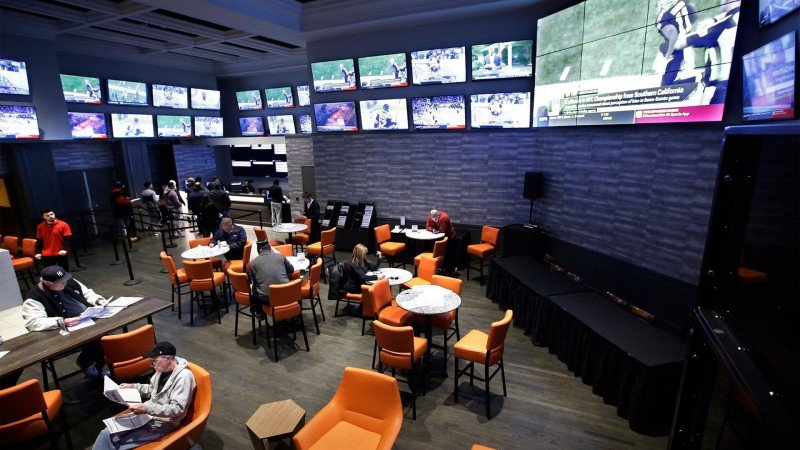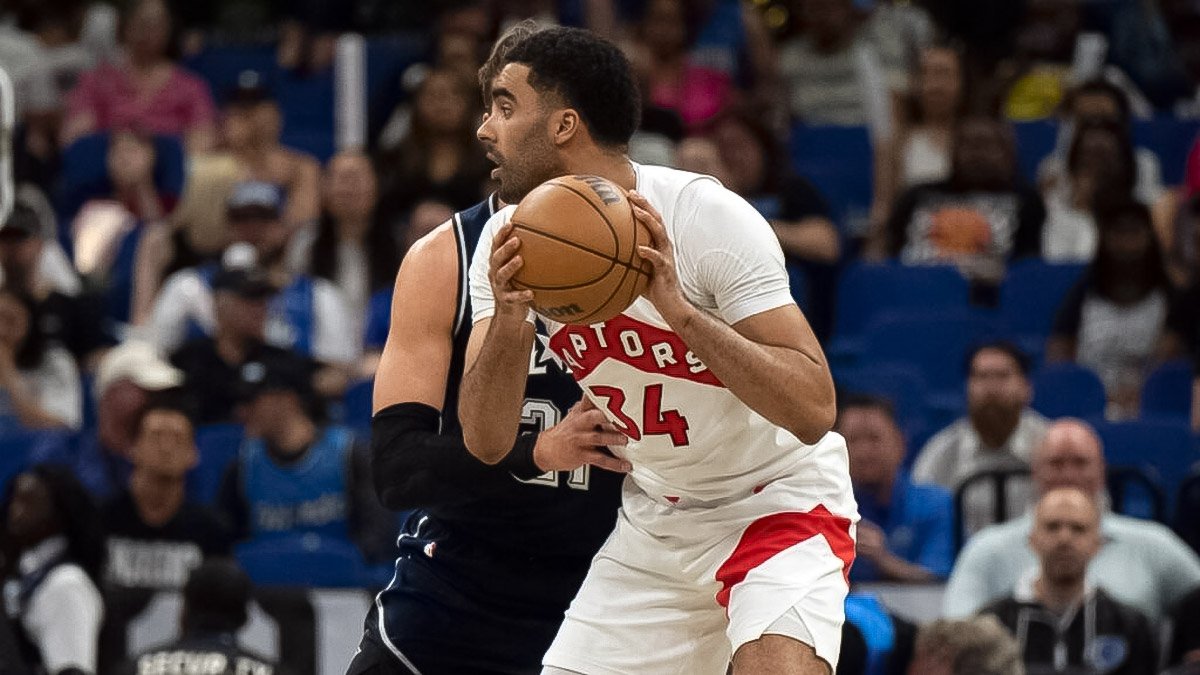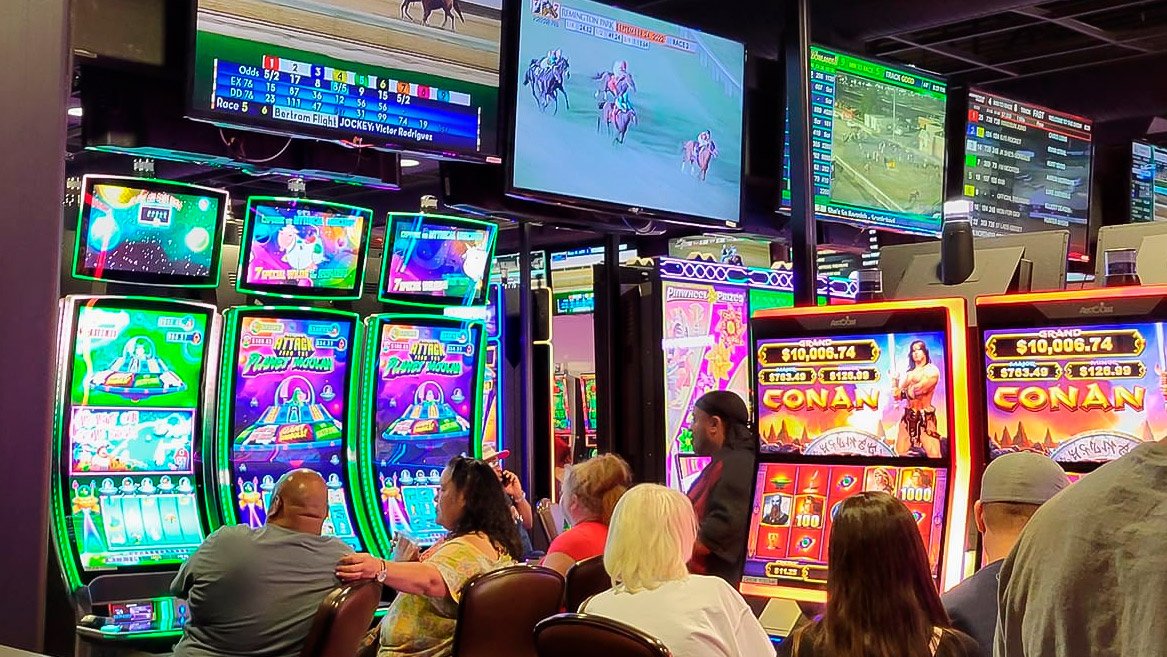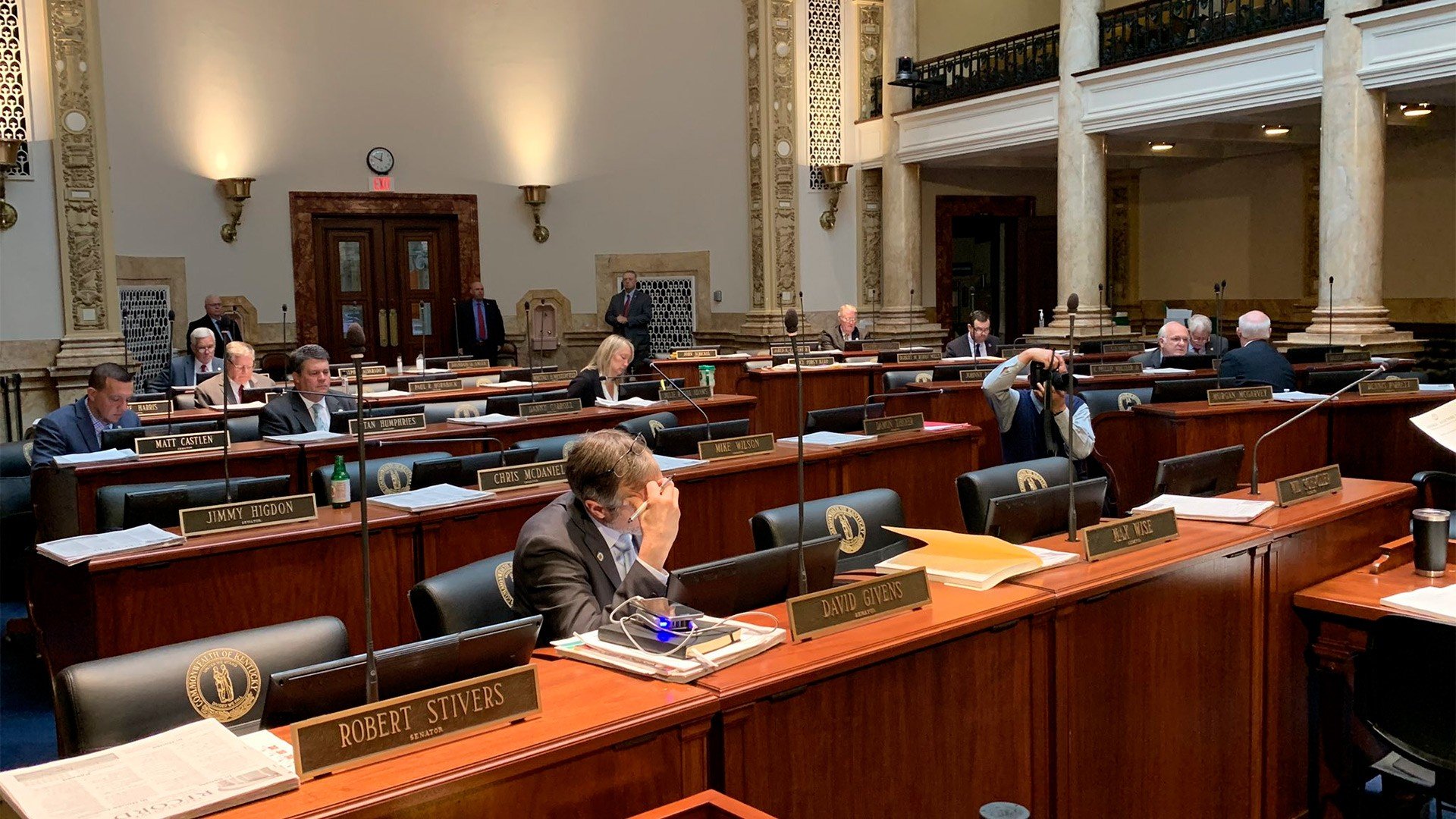Rhode Island’s hold rate was lowest among the 8 states with legal sports betting over last year

The state of Rhode Island is bringing in less money than originally projected in its first year of legalized sports betting — and gamblers have won bets at a higher rate than in many other states, according to industry data.
That distinction was driven home in February, when the Patriots won the Super Bowl, and Rhode Island entered some unwelcome, but exclusive territory in the world of sports betting. It was the only state that allows sports wagering to post a revenue-losing month within the last year, according to research firm Eilers & Krejcik Gaming, and reported by the Boston Globe. It paid out $21.6 million on $20.7 million in total wagers during the month of February.
The Super Bowl outcome was one of several factors that contributed to Twin River Casino in Lincoln and Tiverton Casino combining to book just $4.7 million in profit from sports bets between November 2018 and May 2019, but industry analysts say the state is well-positioned to bounce back during the 2019-20 fiscal year.
“Just think about how different the story is if Rhode Island sportsbooks are on the other side of that,” said Chris Grove, a managing director of sports betting and emerging verticals for Eilers & Krejcik Gaming. Had the Los Angeles Rams won the Super Bowl outright or lost by less than three points, Grove said Rhode Island might have most posted one of best hold rates – the term used for the percentage of money the sportsbooks keep after all bets are settled – in the country.
Instead, Rhode Island’s 4.18 percent hold rate was lowest among the eight states that allowed sports betting over the last year. By comparison, Delaware, Mississippi, Pennsylvania and West Virginia all posted hold rates above nine percent over the last year. But Grove said it’s more common to see states make between four and six percent after all tickets as cashed.
“The hold was definitely affected by the Pats’ playoff run,” said Paul Grimaldi, a spokesperson for the Rhode Island Department of Revenue.
Seven other states – including New Hampshire – have legalized sports wagering this year. Rhode Island lawmakers voted to allow sports betting in 2018, shortly after the US Supreme Court struck down a federal law that banned it in most states. The state hired United Kingdom-based William Hill and IGT to run the sportsbooks out of its two casinos. But Twin River and Tiverton Casino didn’t begin taking bets until after Thanksgiving, which cut into the NFL and college football seasons – prime gambling months.
The state initially projected it would generate $23.5 million from sports gambling during the 2018-19 fiscal year, but the late start forced officials to reduce its expectations to $11.5 million. The final totals for the fiscal year not yet been released, but officials do not expect to come near the state’s goal. The state collects 51 percent of all sports betting revenue, while IGT gets 32 percent and Twin River earns 17 percent.
Rhode Island is banking on bettors losing more often in the new fiscal year. The state has projected it will book $30 million from its sportsbooks by June 30, 2020. The boost is largely expected to come from the state’s decision to allow people to place bets from their mobile devices as long as they are located in Rhode Island.
In New Jersey, which legalized sports betting last summer, mobile gaming now makes up nearly 80% of all wagers, according to Eilers & Krejcik Gaming. New Jersey had $319 million in sports best in May, surpassing Nevada’s monthly total for the first time.
While Grimaldi said the state expects to begin implementing mobile betting by the beginning of NFL season, there is one potential roadblock looming. Daniel Harrop, a former Republican candidate for Providence mayor, has filed a lawsuit against the state claiming that the legalization of sports betting should have been placed on the ballot.
State leaders, including Governor Gina Raimondo, have argued that Rhode Island voters did approve sports betting as part of the legalization of table games in 2012 in for Twin River and in 2016 for Tiverton Casino.
“Our government is so incompetent that it can’t even make money off a legal bookie operation,” said Brandon Bell, an attorney for Harrop. “And, as Dr. Harrop alleges in his lawsuit, our government doesn’t even know how to follow the Rhode Island constitution.”

















































